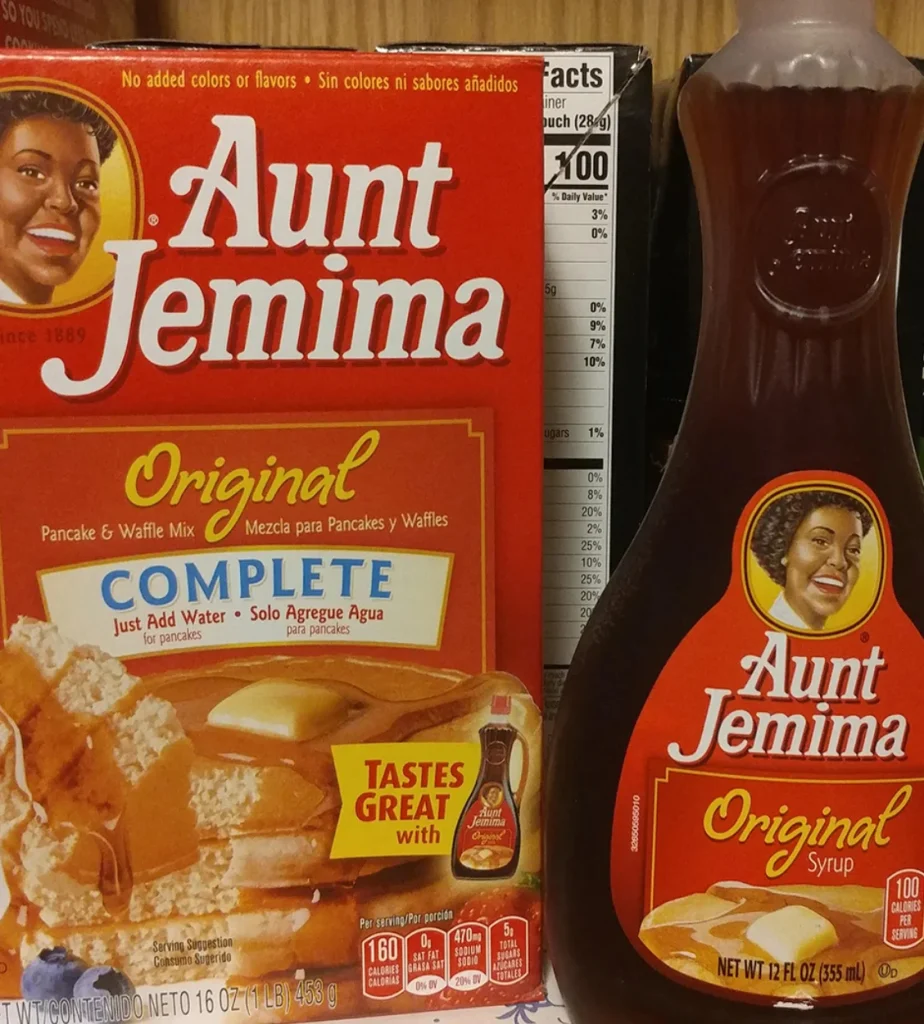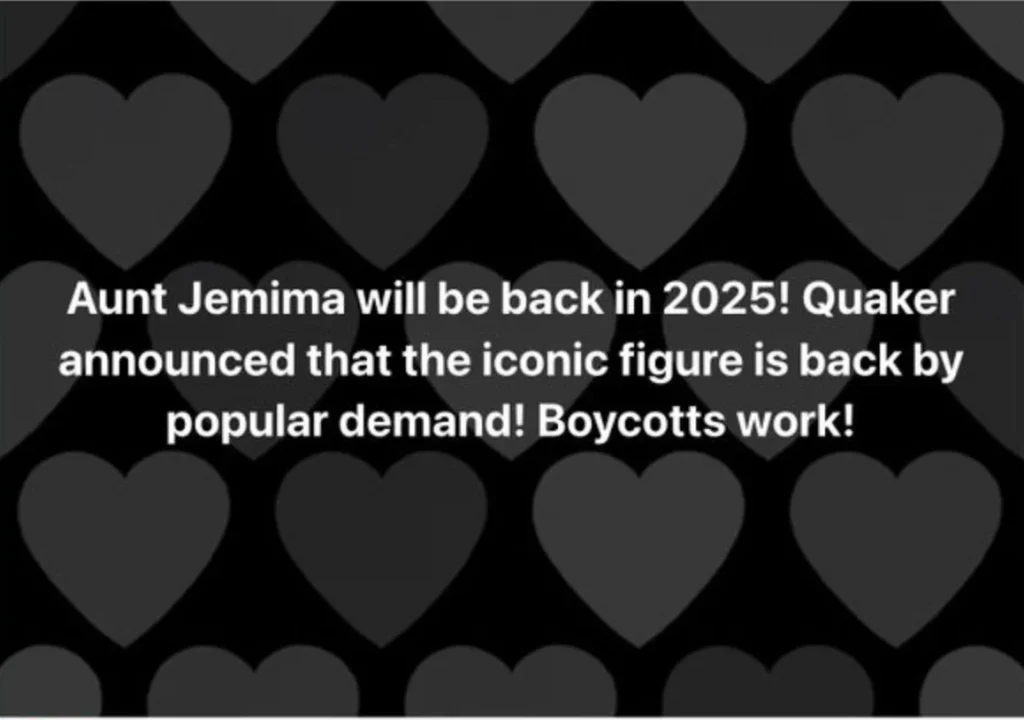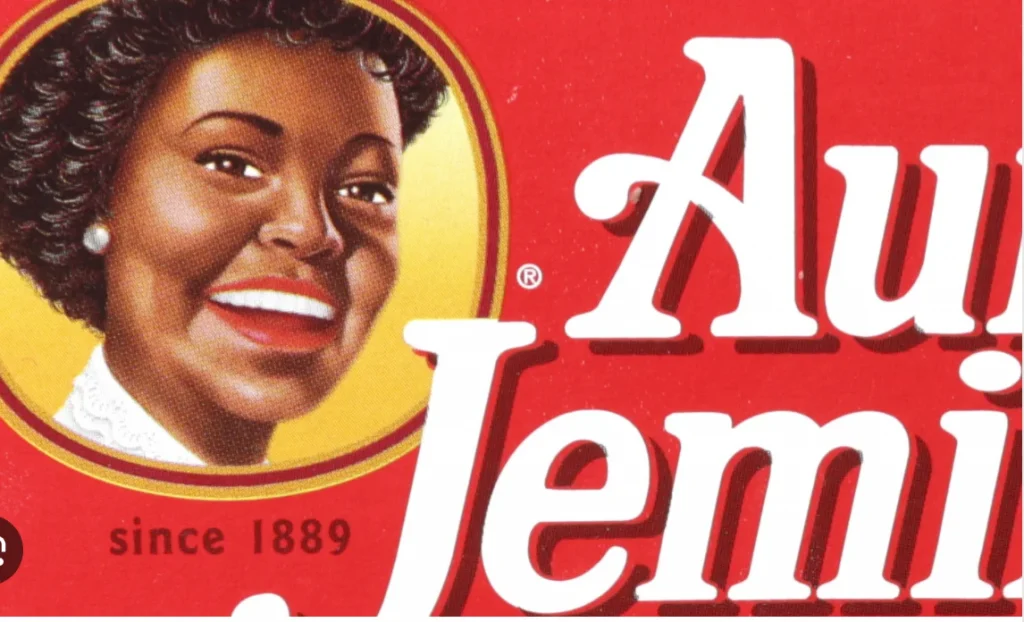Quaker Oats has made a decision that could reshape its legacy in the breakfast aisle. The company has announced a major move that responds to consumer sentiment like never before.
The Aunt Jemima brand, which was established in 1889, has been a symbol of breakfast tradition for over a century. Its connection to American households is undeniable, creating a sense of nostalgia for many.
However, in June 2020, Quaker Oats decided to retire the brand as part of a broader effort to address systemic racial issues. The company stated this was a step toward promoting racial equality and sensitivity.
By early 2021, the familiar Aunt Jemima name and imagery had been replaced with the Pearl Milling Company brand. Quaker Oats described this change as essential to move forward with inclusivity.

This shift aligned with a broader corporate trend of rebranding products tied to controversial cultural representations.
Similar changes were made by brands such as Uncle Ben’s, Mrs. Butterworth’s, and Cream of Wheat.
The decision was not without its critics, however, as many loyal consumers expressed disappointment over the rebranding.
For them, Aunt Jemima represented comfort, tradition, and cherished family memories.
Social media became a platform where consumers voiced their dissatisfaction with the Pearl Milling Company branding. Polls and comments revealed that many felt disconnected from the new brand image.
Quaker Oats acknowledged that older generations, in particular, had a strong emotional attachment to Aunt Jemima. For many, the brand was a staple of their childhood breakfast tables.
Despite these reactions, the company remained committed to addressing the sensitivities associated with Aunt Jemima’s original imagery. This included balancing consumer nostalgia with modern cultural awareness.

The controversy highlighted a broader challenge faced by legacy brands. Companies often struggle to balance evolving societal norms with preserving the heritage and history of their products.
While some praised Quaker Oats’ move toward inclusivity, others felt the brand had lost an irreplaceable connection with its loyal customer base.
The response showcased the delicate nature of corporate rebranding efforts.
Months of deliberation followed, during which Quaker Oats analyzed the feedback from its customers.
The company sought to strike a balance between respecting its past and embracing the present.
After considerable thought, Quaker Oats decided on a groundbreaking approach. The brand aims to meet the demands of its loyal consumers while adhering to modern cultural values.
In a bold and unprecedented move, Quaker Oats has announced the revival of the Aunt Jemima brand.
The company stated, “You asked, we delivered,” signaling their response to massive public demand.

The reintroduced Aunt Jemima will feature a modernized look designed to preserve its heritage while aligning with contemporary values. This update honors the brand’s legacy while addressing past criticisms.
Quaker Oats believes this decision bridges the gap between nostalgia and progress. They aim to create a corporate identity that is inclusive, respectful, and reflective of today’s cultural context.
The company hopes to revive the positive memories that made Aunt Jemima a household name for over a century. Simultaneously, they aim to attract new customers with the updated branding.
This move underscores the influence of consumer voices in shaping corporate decisions. Aunt Jemima’s comeback serves as a case study for how companies can navigate cultural sensitivities while honoring their past.

With the reimagined Aunt Jemima returning to store shelves, Quaker Oats has set a precedent.
The brand aims to rekindle familial connections while presenting a fresh image for the modern age.
Ultimately, the revival of Aunt Jemima reflects a delicate but meaningful effort.
It demonstrates that even as cultural norms shift, tradition and history can coexist with progress.





